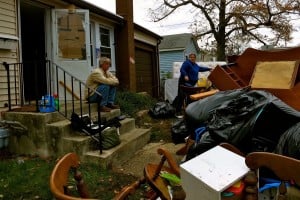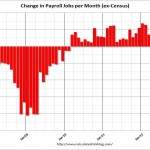
As I emerged from a four-day electrical blackout-imposed media blackout, I started seeing the extent of Sandy’s destruction. More than anything I’m struck by the contrast between three categories:
- The upper middle class and affluent people whose summer homes on the Jersey Shore and Long Island were damaged or destroyed.
- The resilient, mostly alternative lifestyle, folks in Manhattan and the Dumbo, Red Hook and Gowanus neighborhoods of Brooklyn who experienced a blackout and in some cases, some water damage.
- The working class homeowners in Jersey, Long Island and Staten Island who lost their homes and the poor in those areas and the projects in Manhattan who were evacuated.
Being the victim of a natural disaster is upsetting for everyone. To have our illusion of security ripped away, even a little, is difficult to process. We expect that our home will still be here tomorrow. We expect that our stuff in our home will be right where we left it when we come back. We expect that nature will not turn on us violently. But beyond that experience — which all three groups faced — there’s this:
- The first group had a financial loss and an upsetting incident from which they will soon recover and rebuild, tapping their extensive resources and insurance. I count some of these among my dearest friends and mourn their suffering as much as anyone else’s. But they’ll be fine.
- The second group had a life experience they can file away and perhaps learn a little something from, but truth be told, haven’t been hurt at all. Like me, other than losing a bunch of food to spoilage, they probably enjoyed some aspects of it — the pop-up free food offers and sense of camaraderie, and just the pure adventure of it.
- But among the working class homeowners and poor, some have just experienced a life setback from which they may never recover. If their home is gone, they don’t have another one. They may have worked for years to build towards it, and they can’t afford to buy again. They have just taken a step down the ladder of prosperity. Those who were evacuated from flood zones who didn’t have a network of friend extending offers to crash may have spent days in emergency shelters, living in permanent crisis mode like refugees with the emotional toll that takes. Many just lost two to four day’s pay, which they cannot afford to miss. It will have a ripple effect of missed payments on things like rent and health insurance, from which it will take months to recover.
Sandy has highlighted the fact that the poor and lower middle class live in a precarious place. One major setback — like a health crisis that takes the primary breadwinner out of commission — can pull them down the ladder a rung or two. For some, Sandy was that type of setback.
One of my favorite phrases from Catholic social teaching is “the preferential option for the poor.” We must always remember the powerless — the poor, the sick, prisoners and immigrants — it says, and give their fragile wellbeing first consideration over advantages for the comfortable. Can we lend a hand or spend relatively few dollars and make a big difference in their lives? Can we shift some of the crushing burden off their shoulders by sharing it amongst the rest of us?
In government, that doesn’t always translate into a bigger program, more money spent or more intrusion of control into the private sector. What it means is that when a government program for everyone is being implemented, can we make sure first that the truly needy are cared for, then move on to other concerns? President Ronald Reagan used the term “safety net” a lot. It resonates with the American people across the entire political spectrum (except the far right). Whether you believe in government involvement in managing the economy and social policy, most people believe it should provide a safety net for people who find themselves without other support.
The stark contrast is inescapable between the proactive competent FEMA of President Obama during Sandy and the intentionally reluctant and inept FEMA of President Bush during Katrina. FEMA stands as a model of programs that help people in crisis — and everyone can see the proper role of government in this situation. (Well, everyone but Bush’s FEMA director.) But that’s what programs like food stamps and unemployment benefits do as well. Some have criticized Obama for deficit spending to fund those programs during this recent recession, but that’s exactly why they exist — to provide a safety net in a crisis.
We need to move beyond the politics of pro-big-government versus anti-all-government and look at problems head on but with a preferential option for the poor. The ones who are held front of mind should be not those who carry the most political power but those who carry the least — those who actually rely on the government for that safety net.












